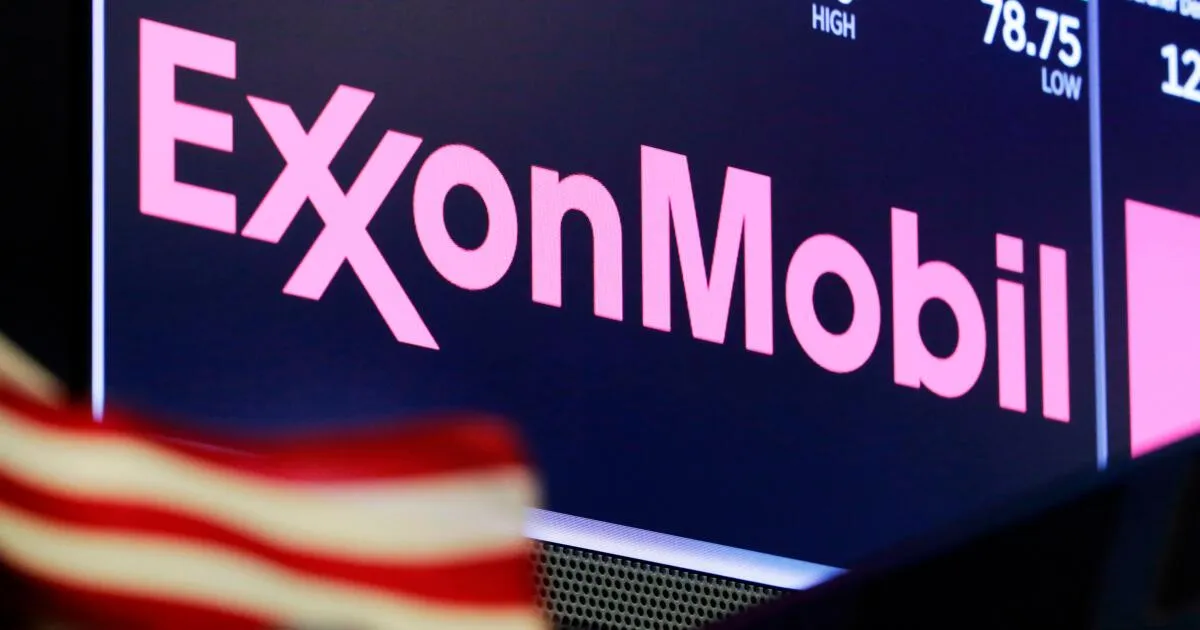
ExxonMobil has initiated legal action in federal court, contesting two recent California laws that mandate the oil company to disclose the greenhouse gas emissions associated with the global use of its products. The lawsuit, encompassing 30 pages, was filed on Friday in the U.S. District Court for the Eastern District of California. ExxonMobil's complaint argues that these laws infringe upon the company's free speech rights, compelling it to promote what it deems to be California’s “misleading and misguided” narrative regarding climate change.
The core of the dispute centers around Senate Bill 253, also known as the Climate Corporate Data Accountability Act, which was enacted in 2023. This legislation requires the California Air Resources Board to establish regulations mandating public and private entities with annual revenues exceeding $1 billion to publicly disclose their emissions across three distinct categories, referred to as “scopes.”
Scope 1 emissions are defined as the direct greenhouse gas emissions produced by a company and its operations. Scope 2 emissions encompass indirect emissions, such as electricity purchased by the company. Finally, Scope 3 emissions account for emissions generated throughout the company’s supply chain, including aspects like waste management, water usage, business travel, and employee commutes. Notably, Scope 3 emissions can represent approximately 75% of total greenhouse emissions for many industries. Reporting for Scopes 1 and 2 is set to commence in 2026, with Scope 3 reporting starting in 2027.
As of Saturday, neither the California Attorney General’s office nor ExxonMobil had provided comments regarding the lawsuit. However, Tara Gallegos, spokesperson for California Governor Gavin Newsom, asserted that the laws have been upheld in court and expressed confidence in their validity. “It is truly shocking that one of the biggest polluters on the planet would oppose transparency,” she stated.
In 2024, multiple organizations, including the U.S. Chamber of Commerce and the California Chamber of Commerce, also filed a lawsuit challenging the same laws. Although a preliminary injunction sought by these business groups was denied, the case is ongoing, with a trial date anticipated in October 2026.
In a previous ruling, U.S. District Judge Otis Wright II indicated that while the laws do regulate commercial speech, the plaintiffs failed to demonstrate that these regulations unlawfully infringe upon their First Amendment rights. He noted, “Plaintiffs argue they will be irreparably harmed by SBs 253 and 261 because the laws compel speech in violation of the First Amendment,” but concluded that they did not provide sufficient evidence to support this claim.
According to the recent complaint filed by ExxonMobil, the Air Resources Board solicited public feedback regarding the rule-making process but has not addressed ExxonMobil's concerns expressed in a letter dated September 5. The oil company argues that the legislative intent behind the bills is to disproportionately assign blame to major corporations like ExxonMobil for climate change, a perspective they classify as misguided. The lawsuit states, “California may believe that companies that meet the statutes’ revenue thresholds are uniquely responsible for climate change, but the First Amendment categorically bars it from forcing ExxonMobil to speak in service of that misguided viewpoint.”
Michael Gerrard, a prominent expert on climate change law at Columbia University, commented that the lawsuit exemplifies ExxonMobil's consistent opposition to climate-related regulations. He emphasized that these laws do not require ExxonMobil to alter its operational practices; rather, they compel the company to disclose information that it would prefer to withhold from the public. Gerrard stated, “If Exxon thinks any of the information would be misleading, it’s free to explain why so that readers can draw their own conclusions.”
Proponents of the legislation argue that it serves to deter corporate greenwashing, which involves marketing tactics that misleadingly depict a company’s efforts to mitigate climate emissions. Senator Scott Wiener (D-San Francisco), the author of the bill, remarked, “We need the full picture to make the deep emissions cuts that scientists tell us are necessary to avert the worst impacts of climate change.”
Additionally, a related bill, SB 261, requires corporations with revenues over $500 million to disclose their climate-related financial risks and the strategies implemented to mitigate these risks. This legislation is projected to impact more than 2,600 companies across California. For example, a company with factories along the coast must outline how rising sea levels could jeopardize its operations, while an automotive manufacturer may need to assess how shifting consumer preferences for electric vehicles could influence its business model.
In its lawsuit, ExxonMobil raises concerns that the new law would necessitate the company to engage in detailed speculation about uncertain future developments, which would then need to be publicly shared on its website. The lawsuit names several defendants, including California Attorney General Rob Bonta, Air Resources Board chair Lauren Sanchez, executive officer Steven S. Cliff, and two officials from the board’s Industrial Strategies Division.